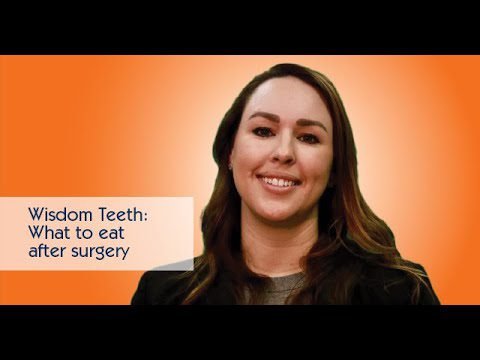Eating After Tooth Extraction: A Guide

After having a tooth extraction, it's crucial to take care of your diet to ensure proper healing and minimize discomfort. Knowing what foods to eat and avoid can make a significant difference in your recovery process. In this article, we will discuss tips and guidelines on how to eat after teeth extraction to promote faster healing and alleviate any potential issues.
When can I eat normally after a tooth extraction?
After a tooth extraction, it is recommended to stick to a diet of liquids and very soft foods on the day of the surgery to allow for proper healing. Gradually transition back to your regular diet within a day or two, taking care to avoid hard, crunchy, or spicy foods that could irritate the extraction site. It is important to follow these guidelines to ensure a smooth and speedy recovery process.
While most people can resume their normal diet within a day or two after a tooth extraction, it is important to listen to your body and follow any specific instructions given by your dentist or oral surgeon. Avoiding foods that could potentially disrupt the healing process will help prevent complications and promote faster healing. Remember to stay hydrated and be gentle with your mouth as it heals to ensure a successful recovery.
How can one eat after a tooth extraction to prevent dry socket?
After a tooth extraction, it is important to focus on consuming soft foods that are high in protein and healthy fats to aid in a smooth and speedy recovery without the risk of developing dry socket. Avoiding hard, crunchy, and acidic foods, as well as carbonated drinks and alcohol, can help prevent irritation and infection at the extraction site. Opting for nourishing and gentle options will promote healing and reduce the chances of complications during the recovery process.
What food is recommended after having a tooth extraction for two days?
After 2 days of tooth extraction, it is recommended to start reintroducing soft and easily chewable foods. You can continue with liquid foods, but also add in soft bread, chicken, and ground meats to your diet. These foods are gentle on the extraction site and provide some variety to your meals as you continue to heal.
Nourishing Your Body and Healing Your Mouth
Take control of your health by nourishing your body with nutrient-rich foods that promote overall well-being. From leafy greens to lean proteins, fueling your body with the right nutrients can help boost your immune system and support optimal functioning. In addition, prioritize oral health by practicing good dental hygiene habits and addressing any issues promptly to ensure a healthy mouth and a radiant smile. By focusing on both nourishing your body and healing your mouth, you can achieve a balanced and thriving lifestyle.
What to Eat and Avoid for a Speedy Recovery
Recovering from an illness or injury can be a challenging time, but choosing the right foods can help speed up the process. To promote a speedy recovery, focus on eating nutrient-rich foods such as fruits, vegetables, lean proteins, and whole grains. These foods provide essential vitamins and minerals that support your immune system and aid in the healing process.
While it's important to include nourishing foods in your diet, it's equally crucial to avoid certain foods that can hinder your recovery. Stay away from processed foods, sugary snacks, and foods high in saturated fats, as these can weaken your immune system and slow down the healing process. Opt for natural, whole foods that will provide your body with the nutrients it needs to recover quickly and efficiently.
Incorporating a balanced and wholesome diet into your recovery plan can make a significant difference in how quickly you bounce back. By choosing the right foods and avoiding those that can impede your progress, you can give your body the fuel it needs to heal and regain strength. Remember, what you eat plays a crucial role in your recovery journey, so make sure to prioritize nutrient-dense foods that will support your body's natural healing abilities.
After teeth extraction, it is essential to follow a soft food diet to promote healing and minimize discomfort. By incorporating nutrient-rich foods such as smoothies, soups, yogurt, and mashed vegetables, individuals can ensure they are still receiving the necessary nutrients while allowing their mouth to heal. Additionally, it is important to avoid hard, crunchy, or sticky foods that may disrupt the healing process. By being mindful of their diet after teeth extraction, individuals can promote a smooth and speedy recovery.